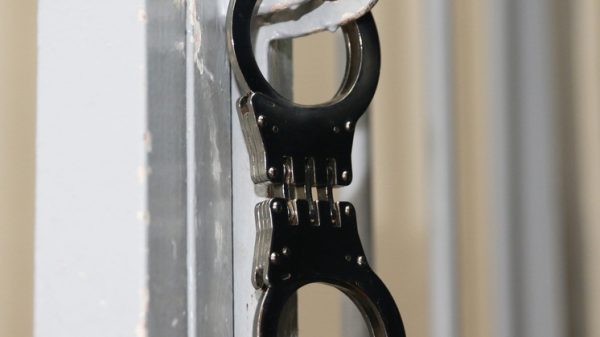The first major real-world study of the Pfizer/BioNTech coronavirus vaccine to be independently reviewed has shown that the jab is as good as the trials promised, in a potentially landmark moment for countries desperate to end lockdowns and reopen economies.
A study of 1.2 million people in Israel, which has vaccinated most of its population with the Pfizer vaccine over the last two months, found that two doses cut symptomatic cases by 94% across all age groups and severe illness by 92%. The data was peer-reviewed and published in the highly regarded New England Journal of Medicine (NEJM).
“This study in a nationwide mass vaccination setting suggests that the … vaccine is effective for a wide range of Covid-19–related outcomes, a finding consistent with that of the randomised trial,” says the paper.
The study can throw no light on how well the vaccine works against the South African variant, which has been causing concern. The vaccine companies, including Pfizer, are all in the early stages of developing new or tweaked vaccines to ensure they protect against variants.
Pfizer has now announced an additional strategy. It will trial a booster shot of the existing vaccine. Those people who received the two-dose vaccine in the earliest stages of the trials, six to 12 months ago, will be offered another dose to see whether the antibodies they produce are enough to neutralise the variant.
The research paper from Israel in the NEJM is the first fully evaluated study of the impact of the Pfizer vaccine in a mass vaccination programme, as opposed to the carefully controlled conditions of a clinical trial in which people with some health conditions or particular risks would not be included.
Some data has already emerged from Israel, which has implemented mass vaccination faster than any other country, but that has been observational. The new study matches people who have been vaccinated against those who have not to evaluate the protection given by the vaccine.
The study looked at the efficacy of one shot after two weeks but before three weeks, when all the participants were given their second dose in line with the trials. The UK is leaving a 12-week gap between doses and the World Health Organization has supported a gap of six weeks.
A single dose was 57% effective in protecting against symptomatic infection, the data shows, 74% against hospitalisation and 72% against death.
Israel: use of Covid vaccines in prisoner swap deal sparks row
Read more
The results of the study for the Clalit Research Institute, the largest health organisation in Israel, were close to those in clinical trials last year that found 95% efficacy from two doses.
“We were surprised because we expected that in the real-world setting, where cold chain is not maintained perfectly and the population is older and sicker, that you will not get as good results as you got in the controlled clinical trials,” the senior study author, Ran Balicer, told Reuters. “But we did and the vaccine worked as well in the real world.”
He added: “We have shown the vaccine to be as effective in very different sub-groups, in the young and in the old in those with no co-morbidities and in those with few co-morbidities.”
The study also suggests the vaccine, developed by the US drugmaker Pfizer and Germany’s BioNTech, is effective against the coronavirus variant first identified in the UK. Researchers said they could not provide a specific level of effectiveness, but the variant was the dominant version of the virus in Israel at the time of the study.
Covid-19 variants and what they mean for vaccines
Read more
Of the 9 million people in Israel, a nation with universal healthcare, nearly half have received a first dose and a third have received both doses since the rollout began on 19 December.
This made the country a prime location for a real-world study into the vaccine’s ability to stem the pandemic, along with its advanced data capabilities.
The study examined about 600,000 vaccinated people against the same sized control group of unvaccinated people. Researchers at Harvard TH Chan school of public health, Harvard medical school and Boston children’s hospital also collaborated.
“This is more great news, confirming that the vaccine is around 90% effective at preventing documented infection of any degree of severity from seven days after the second dose,” said Peter English, a British government consultant in communicable disease control.
“Despite it having been published quickly, the quality of the paper is of the highest. It is rigorous and thorough, with appropriate statistical analyses, and enough data has been provided to allow others to interrogate the data in different ways, should they choose to do so.
“Previous recently studied papers from Israel were observational studies. This one used an experimental design known as a case-control study … giving greater confidence that differences between the groups are due to their vaccination status, and not to some other factor.”
The study published on Wednesday was the first analysis of a national Covid vaccination strategy to be peer-reviewed. It also offered a more detailed look at how the vaccine was faring at weekly intervals, while matching people who received the shot to unvaccinated individuals with similar medical histories, sex, age and geographical characteristics.
Other research centres in Israel, including the Weizmann Institute of Science and the Israel Institute of Technology, have shared several studies in recent weeks that show the vaccine to be effective.
At least three studies out of Israel have also suggested the vaccine can reduce coronavirus transmission, but the researchers have cautioned that wider studies must be conducted in order to establish clearcut conclusions.
Reuters contributed to this report

























































Свежие комментарии